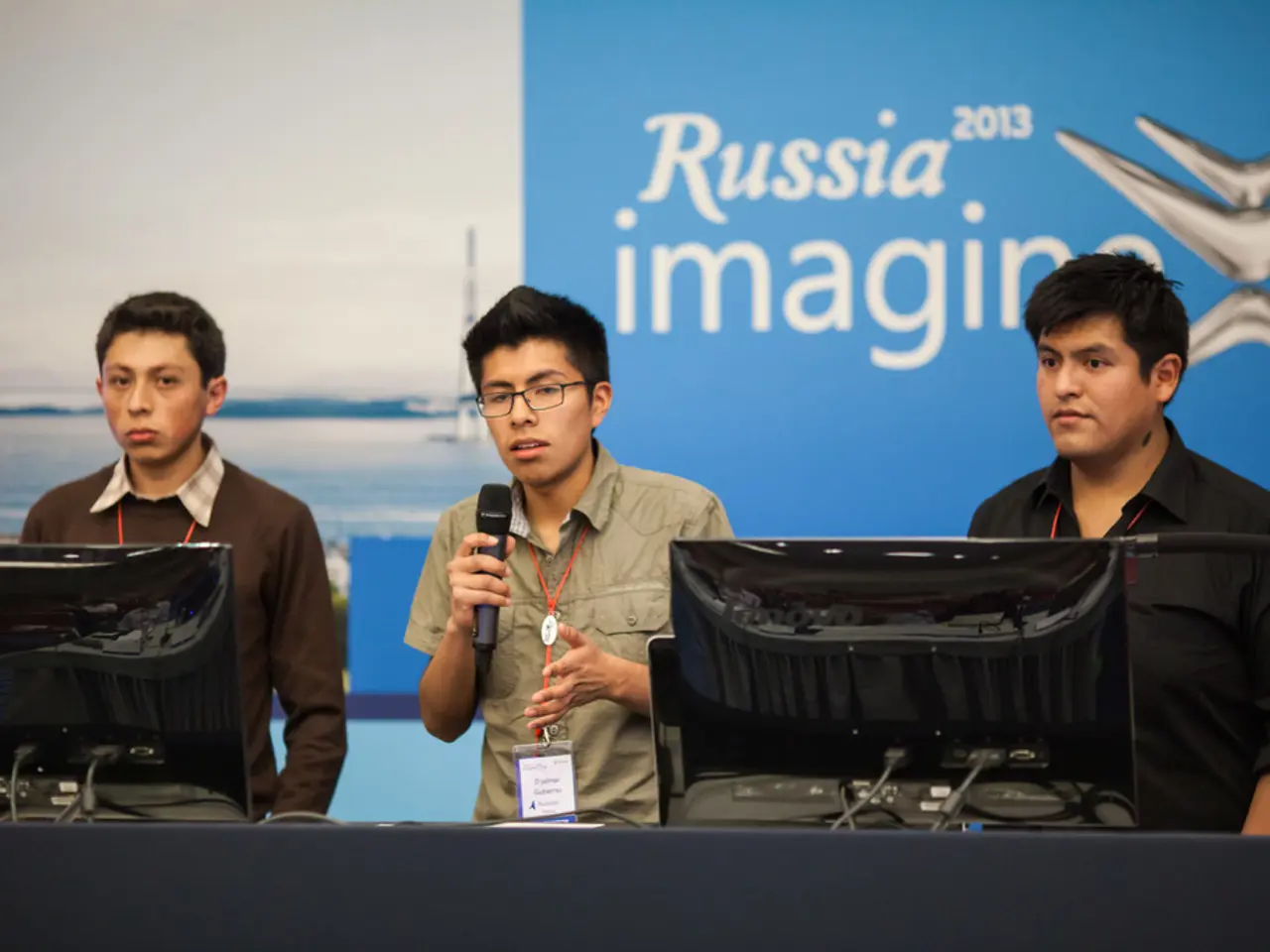China seeks to restrict Nvidia's H20 technology from handling critical government operations
In the realm of AI technology, Nvidia's H20 AI accelerators have been a subject of interest and controversy, particularly in China. The current government policies regarding these chips for government and national security applications show a cautious and increasingly restrictive stance due to national security concerns.
Recent developments have seen Chinese state media and regulators questioning the safety of Nvidia’s H20 chips, alleging possible hardware "backdoors" that could enable remote shutdown or unauthorized access. These claims, voiced by a CCTV-affiliated social media account and Beijing’s cyberspace watchdog, reflect broader anxieties over foreign-made hardware's trustworthiness for national security purposes.
The government has explicitly scrutinized if the H20 allows hidden methods bypassing authentication or controls. In July 2025, Chinese regulators summoned Nvidia to formally address these security concerns, indicating ongoing government-level caution and possible regulatory constraints in relying on these chips for sensitive government and national security deployments.
The critical tone from state media suggests a strategic pivot toward prioritizing domestic AI technology and reducing dependence on Western imports like Nvidia’s H20, especially for sensitive national security uses. Consumers were even encouraged "not to buy it."
Despite these challenges, Nvidia has placed a large order to meet Chinese market demands and expects export licenses from the U.S. However, some suppliers have reportedly been instructed to halt some production of H20 components, reflecting operational uncertainty likely tied to geopolitical and regulatory pressures.
Nvidia CEO Jensen Huang stated that they have significant existing stock ready to fulfill orders, but future supplies may depend on U.S. export policies. It is important to note that the Trump administration may allow Nvidia to resume shipments of its H20 AI accelerators to China.
However, the potential future requirements for Nvidia to add location verification technology to its chips remain uncertain. Legislation mandating the inclusion of such technology is gaining traction among lawmakers in the US House and Senate.
In a previous statement, Nvidia has denied allegations of including location tracking tech, backdoors, and remote kill switches in its H20 chip. The letters Chinese authorities allegedly sent recommend avoiding the H20 for government or national security applications. However, these letters may have less to do with encouraging the use of more sophisticated domestic accelerators like Huawei’s CloudMatrix rack systems and more to do with convincing the US not to reinstate a sales ban or pursue kill switch mandates.
This policy environment aligns with broader efforts by China to develop indigenous AI technologies and control risks from foreign AI hardware dependencies. As the situation evolves, it will be interesting to see how Nvidia navigates this complex landscape while maintaining its presence in the Chinese market.
Read also:
- Automobile manufacturer IM Motors reveals an extended-range powertrain akin to installing an internal combustion engine in a Tesla Model Y.
- Conflict Erupts Between Musk and Apple Over Apple Store's Neglect of Grok
- Partnership between MTN South Africa and SANTACO aims to advanced transportation systems and stimulate economic opportunities for the masses in South Africa.
- Rapid Construction of Rajasthan's 435 Megawatt Solar Power Plant in Eight Months Reduces Carbon Dioxide Emissions by Over 700,000 Tons






